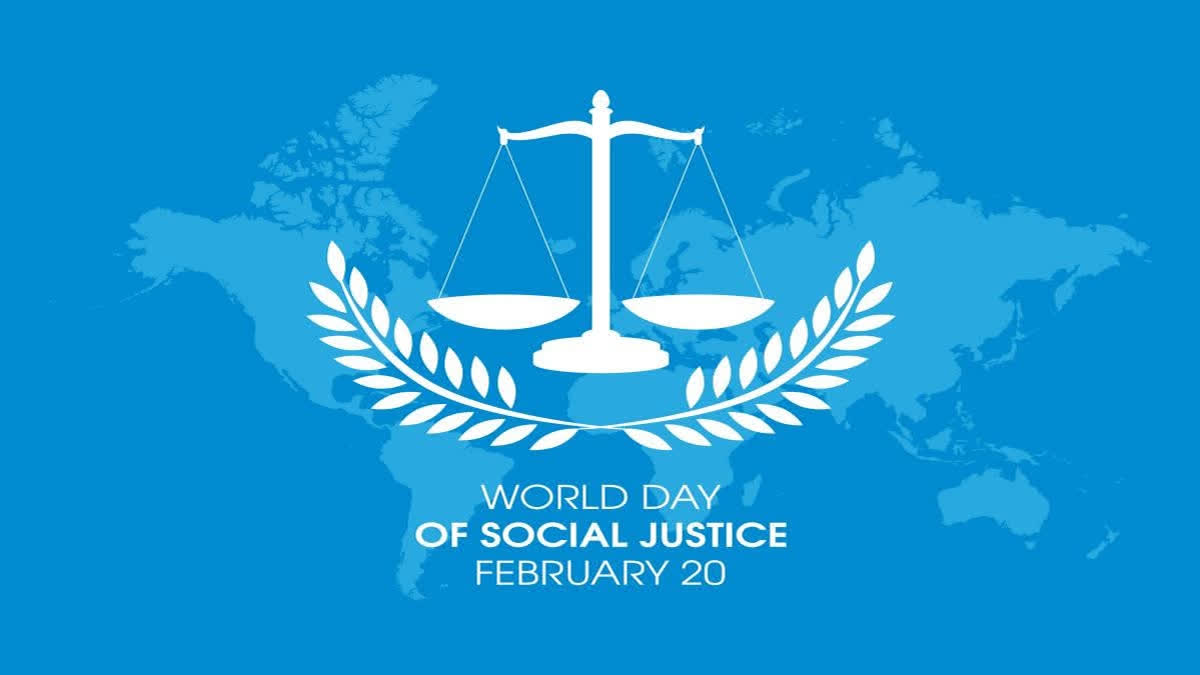New Delhi: Started in 2009, the World Day of Social Justice is observed globally on February 20 recognising the need to promote social justice, including efforts to tackle issues such as poverty, exclusion, gender inequality, unemployment, human rights, and social protection.
- History and Significance
The World Summit for Social Development was held in Copenhagen, Denmark, in 1995 and resulted in the Copenhagen Declaration and Programme of Action.
During the summit, there were more than 100 political leaders pledged to make the conquest of poverty and full employment, as well as stable, safe and just societies, their overriding objectives. They also agreed on the need to put people at the centre of development plans.
Later, the UN’s member states reviewed the Copenhagen Declaration and Programme of Action when they gathered at a session of the Commission for Social Development in New York in February
Subsequently, at its sixty-second session, in November 2007, the General Assembly of the United Nations proclaimed February 20 as World Day of Social Justice. The day was observed for the first time in 2009.
The observance of the day should contribute to the further consolidation of the efforts of the international community in poverty eradication, promotion of full employment and decent work, gender equity and access to social well-being and justice for all.
- Highlight Of The Day
The event highlights the crucial role of international collaboration and solidarity in addressing social justice within the framework of multilateralism. It also gives a timely opportunity to emphasise the prioritisation of social justice at key intergovernmental milestones of the United Nations. By focusing on bridging gaps and building alliances in support of the Global Coalition for Social Justice, the day tries to ensure the promise of enabling societies and economies to function more cohesively and effectively; unlock the productive potential of countries and people; pave the way for sustained reductions in poverty and inequality – prerequisites for inclusive growth; and contribute to peace, stability, and intergenerational solidarity.
- Theme For 2025
The 2025 World Day of Social Justice, convened by the Permanent Mission of the Kyrgyz Republic to the United Nations and the International Labour Organisation (ILO), in collaboration with the UN Department of Economic and Social Affairs (UN DESA), will focus on “Strengthening a Just Transition for a Sustainable Future.” This year’s event takes on special significance as the world prepares for the Second World Summit for Social Development (WSSD2).
“As the global community faces unprecedented challenges from climate change, economic transitions, and social inequalities, the event will explore how inclusive policies can ensure that climate action leads to more and better jobs, reduces inequalities, and fosters sustainable development,” the UN Department of Economic and Social Affairs said.
- Topics For Discussion
This year, the UN has selected some critical topics to discuss. The role of macroeconomic policies and trade frameworks in ensuring inclusive economic growth, climate resilience, and social justice. Strategies for an equitable transition to a low-carbon, job-rich economy, particularly in sectors such as renewable energy, critical minerals, and green infrastructure. Innovative financing mechanisms to support low-income and climate-vulnerable countries in transitioning to sustainable economies. The importance of social protection systems, education, and skills development in preparing workers for the emerging green economy.
The event will also emphasise multi-stakeholder collaboration, leveraging the Global Coalition for Social Justice to align the efforts of governments, businesses, trade unions, and civil society.
- Strengthening a Just Transition for a Sustainable Future
According to the UN, “Strengthening a just transition for a sustainable future means making sure our move toward low-carbon economies benefits everyone, especially the most vulnerable. It requires a holistic approach that weaves environmental sustainability with social justice, ensuring that workers, indigenous peoples, and marginalised communities receive the support they need—through retraining, job creation, and strong social protection measures.”
In other words, decarbonisation and economic transformation should go hand in hand with policies that fight poverty, reduce inequality, and open up opportunities for all.
- Centre for Dalit and Subaltern Studies-India
The Centre for Dalit and Subaltern Studies (CDSS), RGNIYD observes World Social Justice Day every year by organising a special invited lecture. The theme for the 2023 lecture was “Overcoming Barriers and Unleashing Opportunities for Social Justice”.
- Rajiv Gandhi National Institute of Youth Development
The Rajiv Gandhi National Institute of Youth Development (RGNIYD), Sriperumbudur, Tamil Nadu, is an Institute of National Importance by an Act of Parliament No. 35/2012 under the Ministry of Youth Affairs and Sports, Government of India. It was set up in 1993 under the Societies Registration Act, XXVII of 1975.
It works to achieve the national agenda for inclusive growth, and the needs and aspirations of young people of the country to realise their potential.
In view of fulfilling its obligations to the disadvantaged youth, the RGNIYD conducts capacity-building and skills development programmes with a prime objective of enhancing leadership, knowledge and entrepreneurial skills among SC and ST youth across the country.



